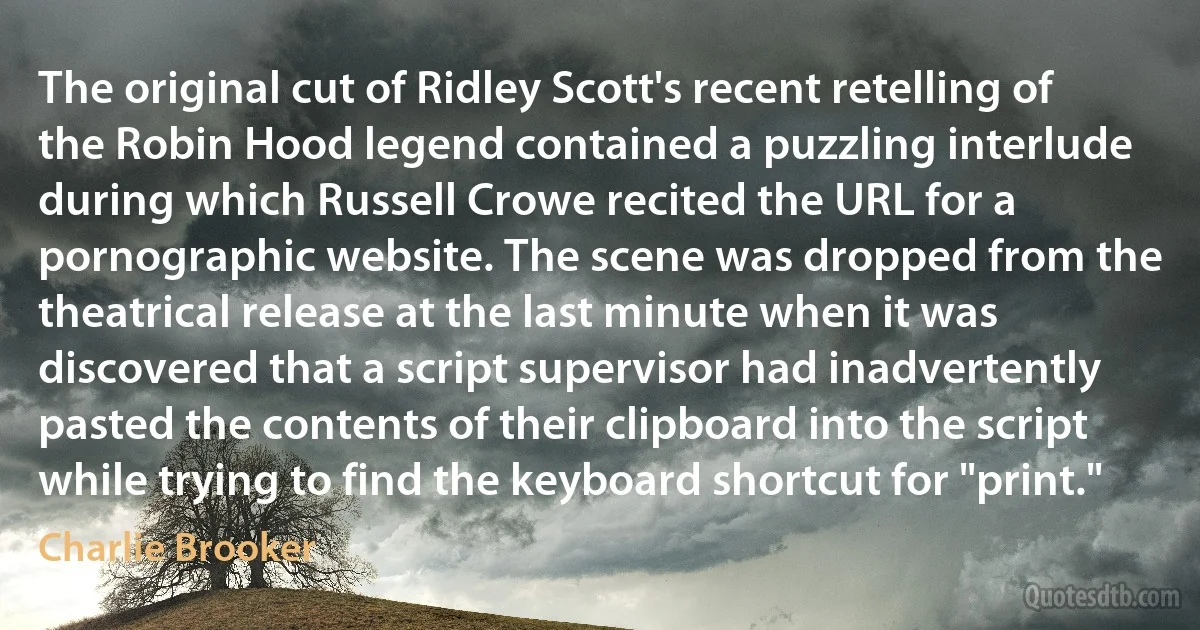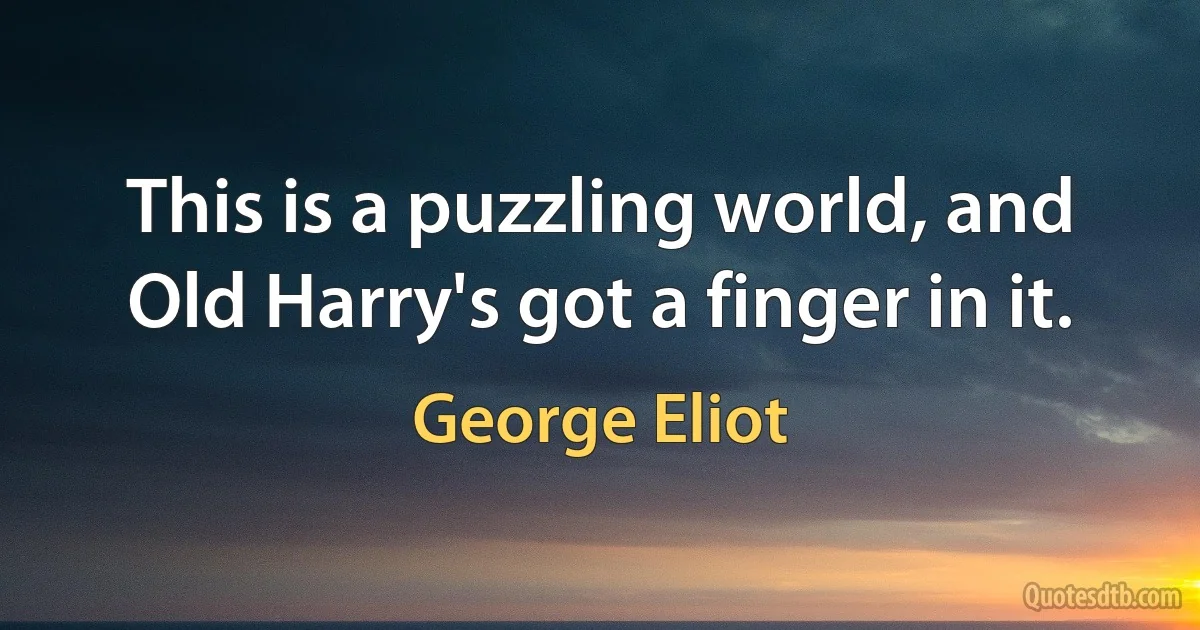Puzzling Quotes - page 2
"Outlier” is a scientific term to describe things or phenomena that lie outside normal experience. In the summer, in Paris, we expect most days to be somewhere between warm and very hot. But imagine if you had a day in the middle of August where the temperature fell below freezing. That day would be outlier. And while we have a very good understanding of why summer days in Paris are warm or hot, we know a good deal less about why a summer day in Paris might be freezing cold. In this book I'm interested in people who are outliers-in men and women who, for one reason or another, are so accomplished and so extraordinary and so outside of ordinary experience that they are as puzzling to the rest of us as a cold day in August.

Malcolm Gladwell
Dots are just one example of an element in Lascaux art, and in all cave art... This is a profusion of nonrepresentational, geometric patterns. In addition to dots, there are grids and chevrons, curves and zigzags, and more. ...The coincidence of these geometric motifs with representational images is one of the most puzzling aspects of Upper Paleolithic art. ...images, six different kinds in all, are shimmering, incandescent, mercurial-and powerful. Called entoptic images-which means "within vision"-these phenomena are products of the basic neural architecture of the human brain.

Richard Leakey
Early in life, most of us probably observe an unhappy relationship between labor and wealth - to wit, the heavier the labor, the less the wealth.
The man doing heavy manual work makes less than the man who makes a machine work for him, and this man makes less than the man sitting at a desk. The really rich people, the kind who go around on yachts and collect old books and new wives, do no labor at all.
The economic reasons for dividing the money this way are clear enough. One, it has always been done that way; and two, it's too hard to change at this late date. But the puzzling question is why, since the money is parceled out on this principle, young people are constantly being pummeled to take up a life of labor.
In any sensible world, the young would be told they could labor if they wanted to, but warned that if they did so it would cost them.

Russell Baker
Kuhn had the genius to find the words and sketch the concepts that made important old philosophical problems relevant to the public and newly discussable by philosophers. He had the strength of mind and commitment to lead the discussion. He could speak the truly incommensurable languages of physics, philosophy, and history, all necessary to frame and advance his epistemological quest. He wrote, as one of his admirers, Margaret Masterman, put it, in a "quasi-poetic style," sometimes veiled, sometimes with "rhetorical exaggeration," but always after careful and even painful thought. Or, to switch metaphors, he drew the portrait of science in the manner of the Impressionists. At a distance, where most viewers stand, the portrait appears illuminating, persuasive, and inspiring; close in, where historians and philosophers stare, it looks sketchy, puzzling, and richly challenging.

John L. Heilbron
We are dissipating superstition, ignorance and fear. We are forging courage, will and knowledge. Every striving toward enlightenment is welcome. Every prejudice, caused by ignorance, is exposed. Thou who dost toil, are not alive in thy consciousness the roots of cooperation and community? If this flame has already illumined thy brain, adopt the signs of the Teaching of Our mountains. Thou who dost labor, do not become wearied puzzling over certain expressions. Every line is the highest measure of simplicity. Greeting to workers and seekers!

Helena Roerich
And the Grinch, with his Grinch-feet ice cold in the snow, stood puzzling and puzzling, how could it be so It came without ribbons. It came without tags. It came without packages, boxes or bags. And he puzzled and puzzled 'till his puzzler was sore. Then the Grinch thought of something he hadn't before. What if Christmas, he thought, doesn't come from a store. What if Christmas, perhaps, means a little bit more.

Dr. Seuss
Schizophrenia--its nature, etiology, and the kind of therapy to use for it--remains one of the most puzzling of the mental illnesses. The theory of schizophrenia presented here is based on communications analysis, and specifically on the Theory of Logical Types. From this theory and from observations of schizophrenic patients is derived a description, and the necessary conditions for, a situation called the "double bind"--a situation in which no matter what a person does, he "can't win."

Gregory Bateson
Schizophrenia --its nature, etiology, and the kind of therapy to use for it--remains one of the most puzzling of the mental illnesses. The theory of schizophrenia presented here is based on communications analysis, and specifically on the Theory of Logical Types. From this theory and from observations of schizophrenic patients is derived a description, and the necessary conditions for, a situation called the "double bind"--a situation in which no matter what a person does, he "can't win." It is hypothesized that a person caught in the double bind may develop schizophrenic symptoms.

Gregory Bateson
It still remains one of the best presentations of this subject ever made; and what adds to our wonder is that it was not the result of a study of authorities, but was worked out wholly from his own observation and thought. Up to this time there were no authorities and no received doctrine on the subject; there were simply records of financial practice more or less vicious; it was reserved for this young student, in a letter not intended for publication, to lay down for the first time the great law in which the modern world, after all its puzzling and costly experiences, has found safety.

Andrew Dickson White



